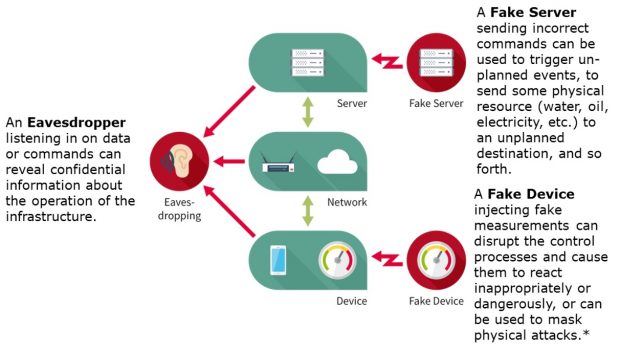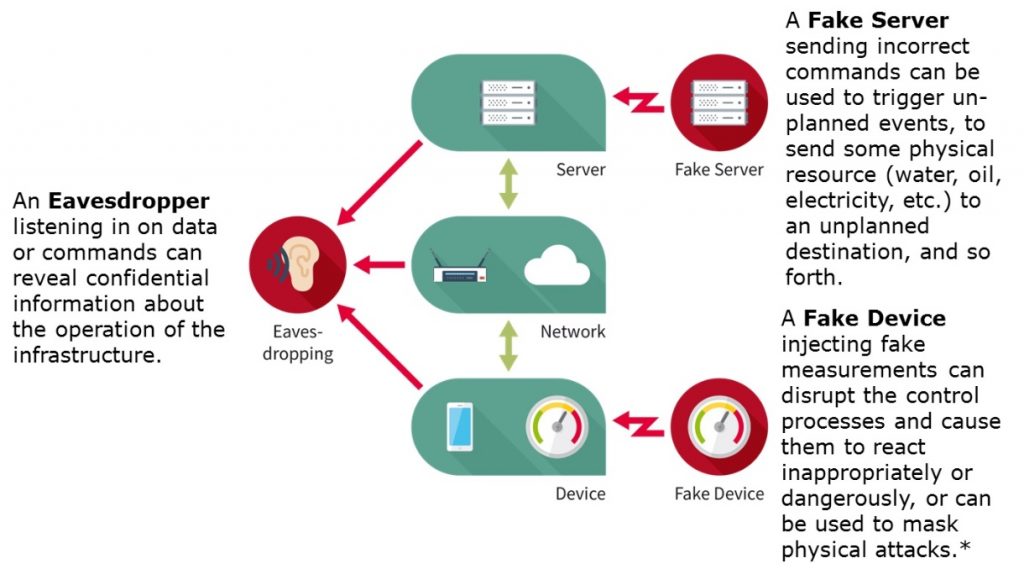Is The IoT Making Us Vulnerable?
Digital security issues have generated a lot of headlines over the course of the past year or two. As we rely more and more on electronic devices for everyday practices, there’s a sense that we may in turn be making ourselves more vulnerable. This increasingly urgent issue was recently highlighted by nothing less than the U.S. presidential election, in which data breaches and email hacks contributed to some of the loudest and most prominent stories and scandals. But the trouble moving forward is that hacking is no longer something that makes us nervous strictly with regard to the information on our computers or phones. Rather, it’s a threat to innumerable aspects of everyday life now that our systems and devices are all joining up with one another through the Internet of Things.
This may sound like a vague problem to a lot of people. But let’s take a look at a few of the specific areas in which cyber security related to the IoT is particularly concerning.
Personal Health
Last summer, Wired posted an incredibly alarming headline: that hackers could send a fatal dose of medication through hospital drug pumps. While accurate in some circumstances, that’s a pretty dramatic assertion. Nevertheless, it highlights a concern that as the IoT increasingly expands into the world of personal healthcare, there are a lot of vulnerabilities that need to be addressed. People are using IoT devices to monitor things like blood sugar and blood pressure, as well as more specific medical conditions. Manipulation of these devices via the IoT could naturally have severe consequences.
Transportation
We already know that autonomous cars are heading our way. Networkfleet reports that Ford Motors is planning on mass-producing self-driving vehicles by 2021, with a ride sharing program to boot. We’ve also heard the likes of Tesla, Google, and Uber making noise about similar ambitions. It’s a very exciting concept but what sometimes goes unsaid is that self-driving vehicles aren’t just advanced machines—they’re interactive ones. These cars will “communicate” with their surrounding environments wirelessly, as part of a massive transportation network that will also be vulnerable to cyber attacks. It’s conceivable that a skilled hacker could alter a vehicle’s routing, cause it to lose power, dismantle its self-driving capabilities, or even stop it completely.
Home Security
It almost goes without saying that this is the primary concern for many casual IoT users (or potential users). IoT devices are increasingly controlling our homes, giving us new ways to monitor security, conserve energy, and facilitate comfort. And as with any other IoT networks, all of those functions could conceivably fall prey to an ambitious hacker. Most worrisome of all is the idea that hackers can use the IoT to peek in on our homes (through security cameras or even baby monitors), and could even find ways to unlock our doors.
Personal Privacy
We put a lot of information about ourselves onto our devices including names, dates of birth, addresses, credit card numbers, and even social security numbers. But CMS Wire pointed out in a post on IoT security concerns that a lot of this information is now transmitted across networks without encryption. This is arguably the biggest potential problem as the IoT expands. By simply using the cloud (an IoT application that isn’t always labeled as such), we’re making our very identities vulnerable.
These are just a few of the mainstream issues people are concerned about. Thankfully, cyber security in the IoT is starting to generate a lot of attention, and those in charge of devices and the networks they communicate through are prioritizing privacy and security moving forward. But we’re likely to see a little bit of a rocky road in the coming years where this whole topic is concerned.
















